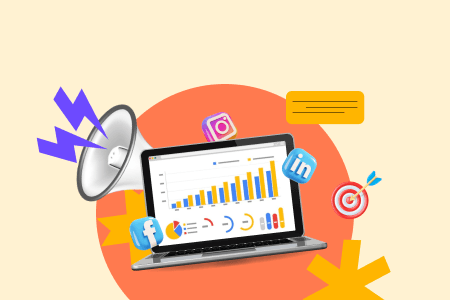Digital Marketing
Digital Marketing 101: A Comprehensive Introduction for Beginners
Neeraja
01/09/2023

Introduction
Did you know that 63% of businesses have significantly increased their Digital Marketing budgets in just the last year? And this number is only set to rise with each passing year. In this blog we will cover the basics of digital marketing including types of digital marketing, why you should learn digital marketing, what are some digital marketing skills required to be successful in the field.
